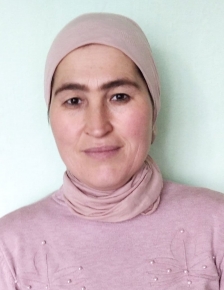Workshop 11
Workshop Title: Facilitating discussions
Workshop Description: In this workshop, participants will present ideas to promote ways for integrating discussions activities and debates in order to learn the importance of facilitating discussions and debates in the classroom and at the end of the workshop they will be able to develop discussion/debate plans by themselves.
|
Gagné’s Nine Events of Instruction
|
|
1. Gain attention
|
- Write the prompt “Schools should require students to wear uniforms” on the board.
- In pairs, Turn and Talk, ask elbow partners whether they agree with the statement or not.
- Ask participants whether they agree or not. If they agree they should Stand up, if they disagree, they should Sit down. Then give follow up question to their pairs “Why?”
|
|
2. Inform learners of objectives
|
Read the objectives (which is written on the boarding card)
By the end of the workshop, participants will be able to:
- describe the benefits of communicative language teaching through pair works, small group works, discussions and debates and how to use them in the EFL classroom.
- explore various cooperative learning and interactive language tasks and strategies that build language proficiency and a classroom discourse community.
- design ways you plan to integrate and manage learning activities that support a communicative approach for language learning in your classroom
|
|
3. Stimulate recall of prior learning
|
- Stimulate participants’ ideas by asking question:
Do you organize discussions in your classroom?
|
|
4. Present the content
|
- Hand the article “Critiquing Questions” out and organize Jigsaw reading.
- Present sample discussion/debate videos and discuss in the group.
|
|
5. Guide learning
|
- After reading the article by Jigsaw reading, organize sharing the data in expert groups and home groups. Based on gained data participants create a question bank with 3-5 question starters which can be used in discussions and debates.
- After presenting the sample discussion/debate videos, assign to select an image that connects to one of lessons in the textbook and create Higher order thinking (HOT) questions to engage students in discussion on that image.
|
|
6. Elicit performance (practice)
|
- Participants work in expert groups and home groups sharing the data first and creating question banks.
- Participants work in groups of 3-4 and create Higher order thinking (HOT) questions to engage students in discussion.
|
|
7. Provide feedback
|
- In groups, participants will create a question bank and HOT questions. demonstrate their questions to the class.
- Organize peer-assessment, participants will sign out their marks (1-5) for the works of other groups secretly.
- Add up the marks of participants and give P-Q-P feedback to each group.
|
|
8. Assess performance
|
Before they leave, give participants a piece of paper with three questions:
- What was the most interesting thing I learned?
- What was the most important knowledge I gained?
- What question do I still have?
Collect the Exit Tickets to assess the participants understanding of workshop content.
|
|
9. Enhance retention and transfer
|
Before participants leave the workshop, ask them to rate in Scale 1-5 the effectiveness of discussion and debates. Then they have to create a list of debate topics that align with their curricula and post a bucket of prompts.
|

